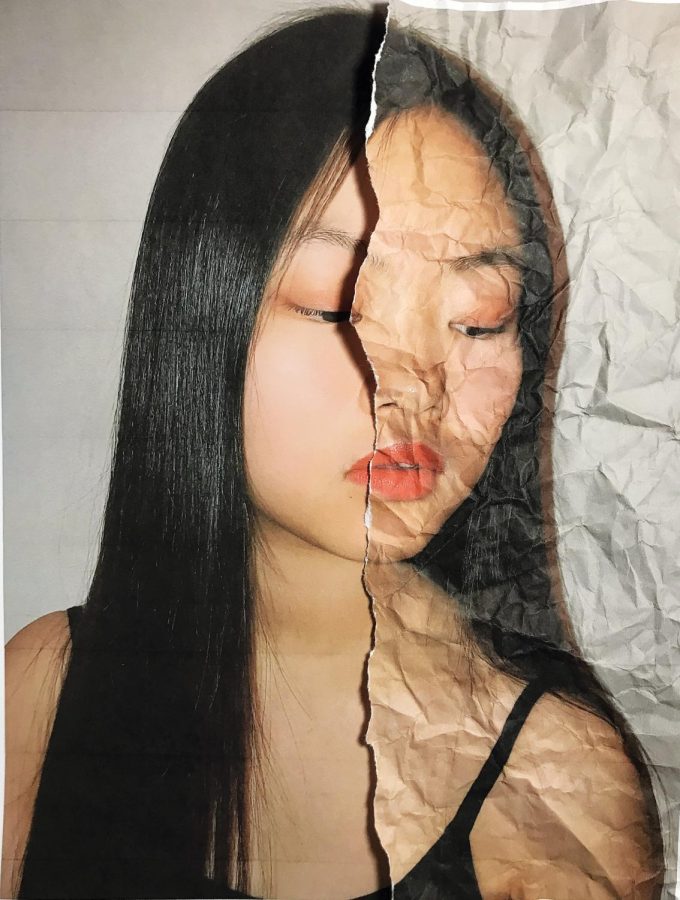Remodel the model minority
The model minority should matter to you, whether you’re Asian or not.
WSS Reporter Jenna Wang explores both sides of the model minority myth.
We all know the common Asian stereotype: super smart, math geeks and are perfectly quiet. Asians have achieved more success than any other minority and are therefore the model to follow, otherwise known as the model minority.
Sounds like a compliment to Asians, right? You’d be wrong.
Imagine that someone assumed you were smart based solely on the color of your skin. Forget the hours you spent crying over one math problem or the fact that you didn’t have perfect grades. They’re still going to copy your homework because hey, being Asian must mean you’re a genius.
Well, where the heck is my individuality?
Growing up Chinese American, my self-image was always a misty cloud, trying to find the clarity between what I actually loved doing versus conforming to the model minority stereotype. Being one of the only Asians in choir and theatre, there was always some sort of subconscious shame that I wasn’t in math club or school orchestra and instead, sung and acted.
Questioning the model minority origin, I wondered if this internal urge to fulfill it had anything to do with an immigrant’s goal of the American Dream or something grand. Did a wise Asian God spin divine wisdom and will it to be?
The term was actually coined by a William Peterson in a 1960s New York Times article. Cue the disappointment.
Nevertheless, after digging deeper, I was surprised at the darkness of its history.
Decades before the model minority existed, the complete opposite was an echoed sentiment throughout America, bringing with it a wave of hate crimes and the Chinese Exclusion Act, which was the first law of its kind to completely ban an entire race from immigrating over.
Following Pearl Harbor, all Japanese Americans were forced into internment camps. They weren’t American, so they couldn’t be trusted, could they? They were still foreigners.
Twenty years later, William Peterson arrives. He types up a Japanese American story, and a success story at that. Barely two decades have gone by, but Japanese Americans have “risen above prejudiced criticism better than any other group in our society, even above native born whites.” The model minority is born.
Originally meant to describe just Japanese Americans, the term began to spread to all Asians, expanding until people couldn’t be bothered to tell the difference.
When the Immigration Act reversed the laws banning immigrants from Asia in 1965, the term became so mainstream that the law only allowed professionals like doctors to come in.
And, to my surprise, I discovered that the media had severely overlooked the civil disobedience that Asian Americans had done in protest of unfairness throughout history. As a community, we’re often treated as constant foreigners despite our long history. Ingrained with the notion that Asians were submissive, the model minority led me to believe that Asians were never activists. I couldn’t remember when I last saw an Asian in a protest, but perhaps, that was the media socially manipulating me to believe so.
It turns out, the model minority has everything to do with all minorities, not just Asians. The term was made to insult black and Hispanic people, used as media propaganda to drive a justification—to say, ‘If Asians can become so successful and able to overcome past events like the internment camps, then why can’t you? This proves that racial discrimination and disparities don’t exist.’
It essentially drives the idea that blacks and Hispanics are inherently bad, and that their past hardships mean little at all, which is ignorantly untrue.
This article isn’t meant to say that the model minority is completely false. There is truth in numbers, which show that generally, Asians are more socioeconomically successful. However, when you examine individual ethnic groups, a clear disparity forms.
According to AAPIData, one out of every seven Asians are undocumented, or about 1.5 million people. The reason you don’t hear about this on the news? The model minority plays a big part in keeping them from coming out and seeking help. They have to internalize the struggle and are expected to display a stable appearance.
Not only do undocumented Asians do this, but many Asian Americans as a whole. We are far less likely to seek mental health resources than white people, afraid to crack our external image. I distinctly recall being surprised when I heard just how many of my white acquaintances had weekly therapy meetings. The notion was practically unheard of in the Asian community.
However, just because something can’t be seen doesn’t mean it ceases to exist. According to the American Psychological Association, suicidal deaths are 30% higher for Asian American women than their white peers.
So why is it important that you learn about the model minority now? It’s because in such an unprecedented time of social distancing and increased racism not just against Asian Americans but all minorities, the world needs to come together now more than ever.
We need more stories and more representation to change the status quo.
Asians are still heavily underrepresented in areas like sports, politics and the media. A recent study by the University of Southern California’s Inclusion Initiative showed that Asian Americans only represented 1% of all leading roles in Hollywood, even though the census reports that Asians make up 6% of the population.
When was the last time you saw an Asian romantic lead, or an Asian running for president before Andrew Yang?
Often, Asians hit a bamboo ceiling where they find that top level spots are mostly filled by white people and that they’re only seen as supporters and workers, not leaders. We’ve been socially conditioned to not speak out about racism, minimize it and not complain when it happens to us—when we should be doing the opposite.
The model minority erases uniqueness and the issues greatly affecting our communities. We must be conscious of our words and uplift each other, no matter how chaotic the world may seem momentarily.
We must remodel the model minority.
Your donation will support the student journalists of West High School. Your contribution will allow us to purchase Scholarship Yearbooks, newsroom equipment and cover our annual website hosting costs.

Jenna Wang is a senior at West High. It is her third year on staff and she is the Editorial Editor, Co-Copy Editor and a reporter for the print publication....




